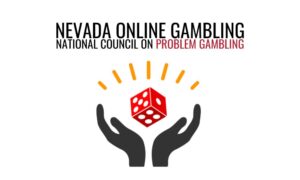
It seems that even the most popular news outlets can have off days.
Leah McGrath Goodman’s “Poker Face” is heavily flawed with inaccuracies, biased viewpoints, and anti-online gambling perspectives that are presented as undeniable truths. It makes one ponder if Sheldon Adelson himself is the ghostwriter behind the piece.
Should Goodman’s piece have aimed at triggering an emotional response from online gambling supporters, then it successfully accomplished that. Should its purpose have been to reinforce the necessity for enhanced education on the stringent regulatory guidelines implemented by the three US states where online gambling is presently legal, then it was a resounding triumph.
However, it fell short in providing a balanced and accurate portrayal of the current situation of online gambling in the United States.
I want to thank @truth_eater for that. Not because I’m particularly fond of your article, but because it sparked criticisms such as these:
11 Major Issues With Newsweek’s Bizarre Diatribe Against Regulated Internet Gambling
Newsweek Portrays Online Gambling as a Danger to American Families
Newsweek Fails in Reporting on Regulated Online Gambling: Johnny G Smackdown
I strongly recommend readers to persevere through Goodman’s article, at least to feel motivated to read these truth-filled reports from experts in the online poker industry.
The proverbial floodgates were already open, Leah
Goodman writes the following:
The term “legislative process” reflects the growing concern among many lawmakers who worry that the Obama administration may have unintentionally paved the way for online gambling in the U.S without intending for it to undergo a vote in Congress.
It may indeed be the case that uninformed opponents of online gambling, like Rep. Jason Chaffetz (R-Utah), hold Obama and the Department of Justice accountable for the rampant online gambling. However, as a journalist, she was duty-bound to convey the truth – that online gambling gained popularity in the United States long before U.S. Deputy Attorney General Virginia Seitz expressed her views on the Wire Act.
To determine the timeline, let’s consider this: The DOJ changed its position on the Wire Act towards the end of 2011. However, real-money online poker became accessible to US residents as early as 1999. Therefore, by the time Chris Moneymaker secured his place in the Main Event through a satellite tournament, the opportunity for such online gaming had already been widely available.
Then and now: Unregulated vs. regulated online gambling
Goodman does not put much emphasis on the advantages of regulation. She also fails to distinguish between lawful and unregulated online gambling. From the reading, there is no evidence to suggest that the iGaming activities in Nevada, New Jersey, and Delaware are less harmful to kids and adolescents compared to those of Full Tilt Poker around 2010.
It was necessary to make this distinction.
In the peak years of online poker (mid-2000s), offshore sites dominated the US market without any regulatory framework. This lack of regulations made it considerably easier for individuals, such as 18-year-old teens, to misuse their parents’ credit cards. They simply had to tick a box affirming they were over 21 years old (if such an option was available) and proceed to deposit money into an online account.
In the system regulated by the state, those registering are required to offer confidential information such as their Social Security Number. This data is subsequently verified for accuracy against both governmental and third-party databases. Users are only granted permission to play once their information has been authenticated and they are judged as qualified.
They also have the option to choose Strong Authentication, which necessitates them to enter a time-sensitive access code received through SMS or email every time they access their account.
Let’s go a step further.
Problem gamblers, or individuals who doubt their capacity to maintain their gambling within their budget, can opt to set limits or prohibitions on their play. Overall, these specific aspects of regulated gambling effectively prevent adolescents from accumulating significant online gambling debts.
All Goodman needed to do was underline these basic but significant contrasts, or at the minimum, offer a quotation from a credible source, as a counterargument to assertions like:
Chaffetz is concerned that without stringent regulations, it will be easy for youngsters to access gambling sites and start betting. Most online platforms assume that users are of legal age if they can provide credit card details. He notes that in traditional, physical casinos, it’s straightforward to spot an underage individual on the casino floor. However, with online gambling, there are no tangible hindrances, and nothing to prevent a minor from developing a gambling addiction.
Indeed, Mr. Chaffetz, creating an online gaming account to play for real-money is currently very simple, provided the site is unregulated.
Mr. Chaffetz ought to be expressing gratitude towards states that have regulated online gambling if anything. This is because offshore sites, which indeed pose a risk, are withdrawing massively in these states.
Here are a few examples of what’s occurring in states that have iGaming operations:
“Effective Immediately”, Winning Poker Network Withdraws from New Jersey, Delaware, and Nevada
Network Merge to Withdraw from New Jersey, Delaware Markets
Bovada Imposes Restrictions on Players from Nevada and Delaware
The unbalanced nature of Goodman’s piece is evidenced by her failure to contest any of Jason Chaffetz’s inaccurate statements.
Making sense out of Goodman’s social gaming diatribe
Goodman devotes a significant part of her work to linking social casino games with real-money online gambling. However, I’m not completely certain about her objective.
She might have been suggesting that children initially engaging in social casino games are more susceptible to gambling addiction risks later in life. However, if that’s the case, it’s never explicitly stated.
Considering the subtitle of the article is “How Washington Opened the Floodgates to Online Poker, Dealing Parents a Bad Hand,” the argument about social games seems irrelevant in this context. Here’s why:
The redefinition of the Wire Act had no connection whatsoever with social gaming, which would unquestionably continue to exist even if the Department of Justice never changed its stance.
Admittedly, gambling addiction among children is a genuine issue, and I appreciate its acknowledgement. However, rather than prohibiting all online games, including those that involve gambling or otherwise, the most effective strategy is:
- Inform parents and other authoritative figures about the early indicators of gambling addiction.
- Put in place more stringent regulatory measures to reduce the occurrence of addiction.
Standardized regulations for online gambling already exist in New Jersey, Delaware, and Nevada, and will be implemented in any other state that chooses to legalize it. However, these regulations are currently absent in MMORPGs, social gaming platforms, and multiplayer console games like Call of Duty.
Last month, the iGaming industry in New Jersey generated roughly $10 million in gross revenue. In the first quarter of 2013, Facebook single-handedly netted $213 million, mostly from social games that offer no financial benefit to users.
Yet, the biggest issue seems to be online gambling and Washington’s refusal to inhibit liberty.
Banning online gambling on a Federal level will work about as well as Prohibition
Ban alcohol and addicts will still manage to obtain it unlawfully. Take away regulated online gambling in the U.S. and addicts will discover alternate ways to gamble, such as using an offshore site, joining an underground club, or relocating to a place where online gambling is allowed.
Despite the inconvenience, drinking didn’t cease in the 1920s, and it’s highly unlikely that it will deter online gambling now. In fact, the thrill of engaging in an illegal activity might even tempt children to partake in a potentially addictive behavior more than if it were a legal and regulated activity.
Contrary to Mr. Chaffetz, I have evidence to support my assertions. A report by Arjel in 2013 states that the occurrence of problem online gamblers in France decreased from 8.3% to 6.6% following the introduction of regulated online gambling.
If the government accepts Chaffetz’s and Adelson’s baseless and unverified allegations, it could ironically result in these two anti-gambling crusaders promoting the growth of the very thing they are striving to suppress.
Ironic.
Other inaccuracies
In addition to being skewed, biased, confusing, and propagandistic, Goodman’s article is teeming with inaccuracies. While I won’t delve into specifics, the articles referenced in the introduction of this piece thoroughly expose her mistakes. However, here are just a few examples of the falsehoods that pervade her work:
- Lindsey Graham stated, “The Obama administration’s decision has effectively turned virtually any cellphone or computer into a video poker machine.” However, this is not applicable in all but two states. Goodman did not dispute this statement.
- Has there ever been a case where a geolocation error permitted someone outside of New Jersey or Nevada to play poker on a regulated site? More often than not, geolocation is so stringent that even players within the state boundaries occasionally encounter login difficulties.
- So, Chaffetz asserts that “unless we act swiftly to establish some appropriate regulations, which are currently lacking, we won’t be able to prevent [Internet gambling] from spreading to every state.” So, are you implying that without improved regulations, Utah, your state, will authorize online betting? Please, don’t even try, it’s a lost cause.
- Goodman states that the overturning of the Wire Act in relation to online gambling effectively erased “50 years of legal precedent”. This seems surprising to me, especially since I don’t recall my Great Aunt Hilda partaking in online poker games back in 1964. But alright then.
- Goodman strongly affirms that the ban on horse racing was indeed maintained.
I hope that the inaccuracies in Poker Face will keep eliciting intense responses from the online poker community. This would at least help to increase awareness about regulated online poker. From what I’ve read today, it’s clear that we need this awareness more than I initially thought.
If that occurs, I will personally express my gratitude to Goodman for countering the uninformed perspectives of Sheldon Adelson and Jason Chaffetz.







